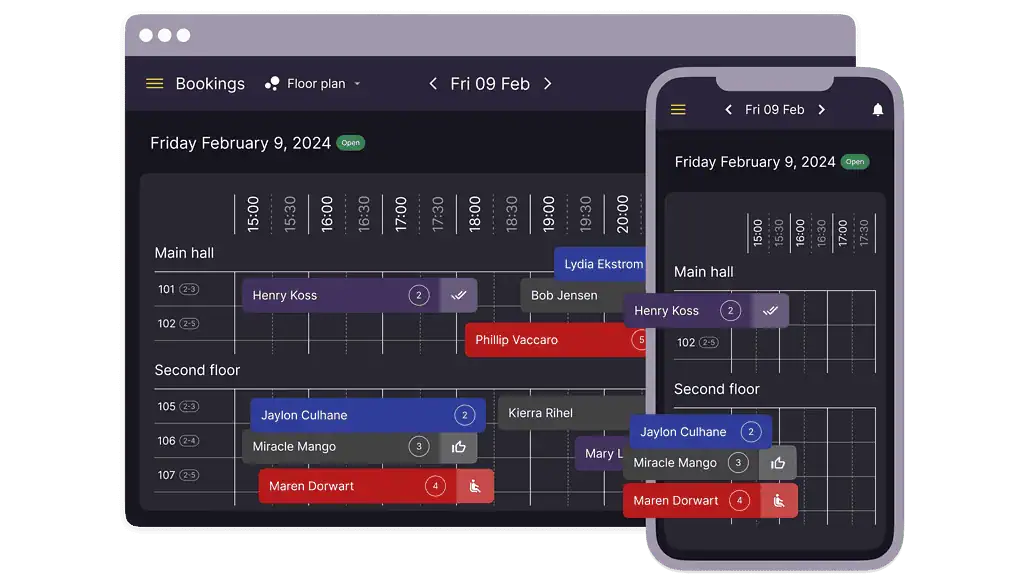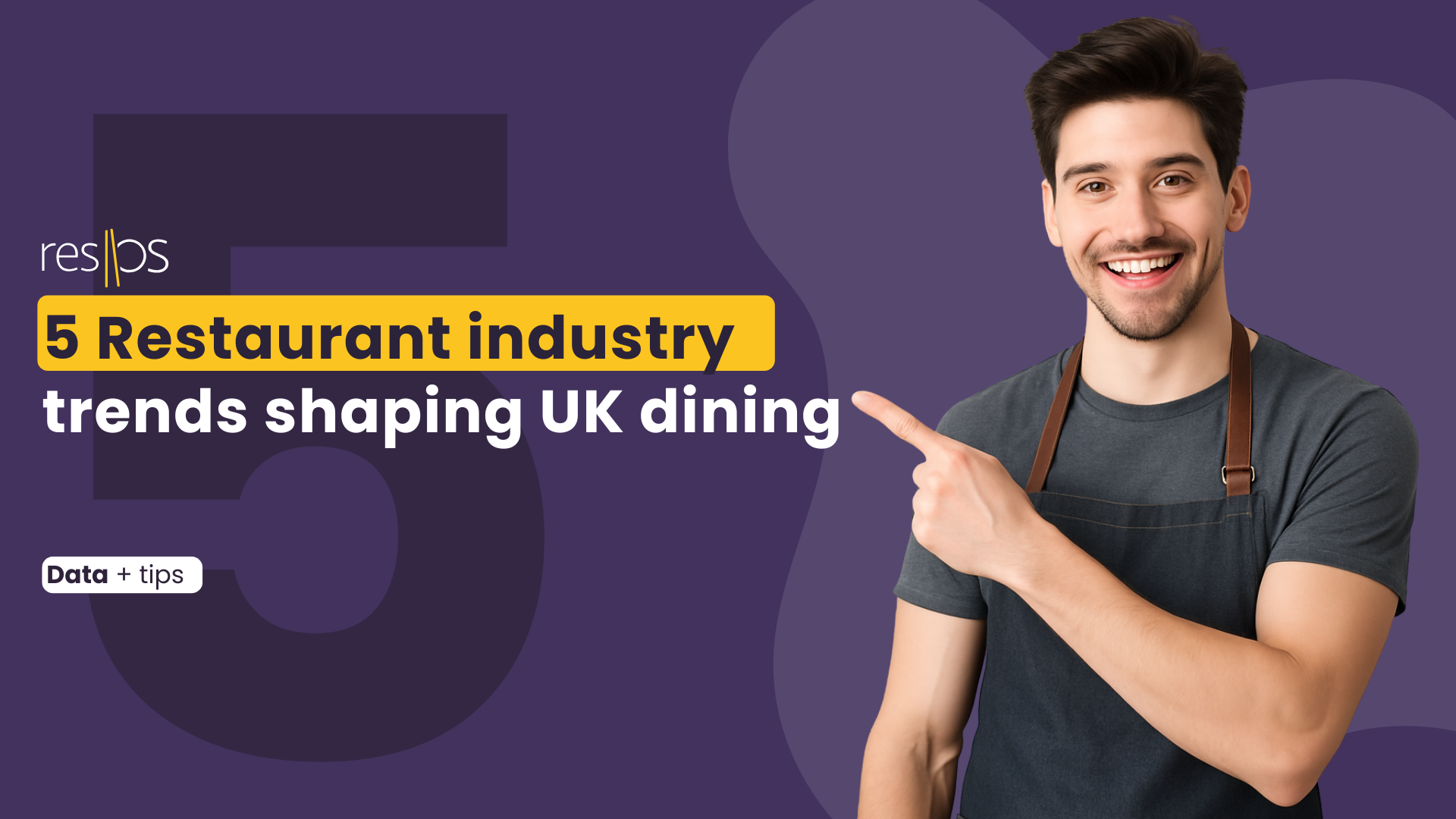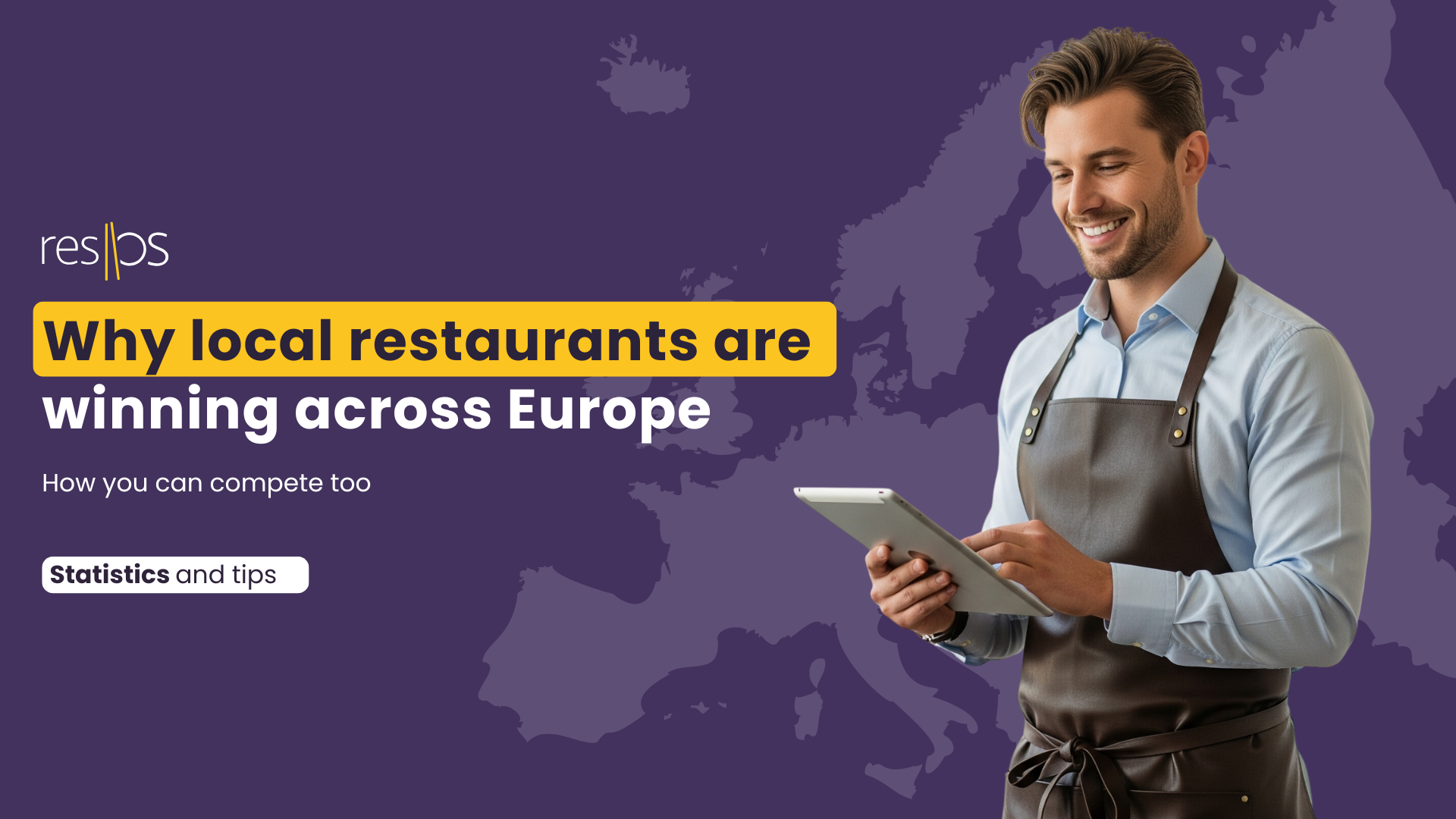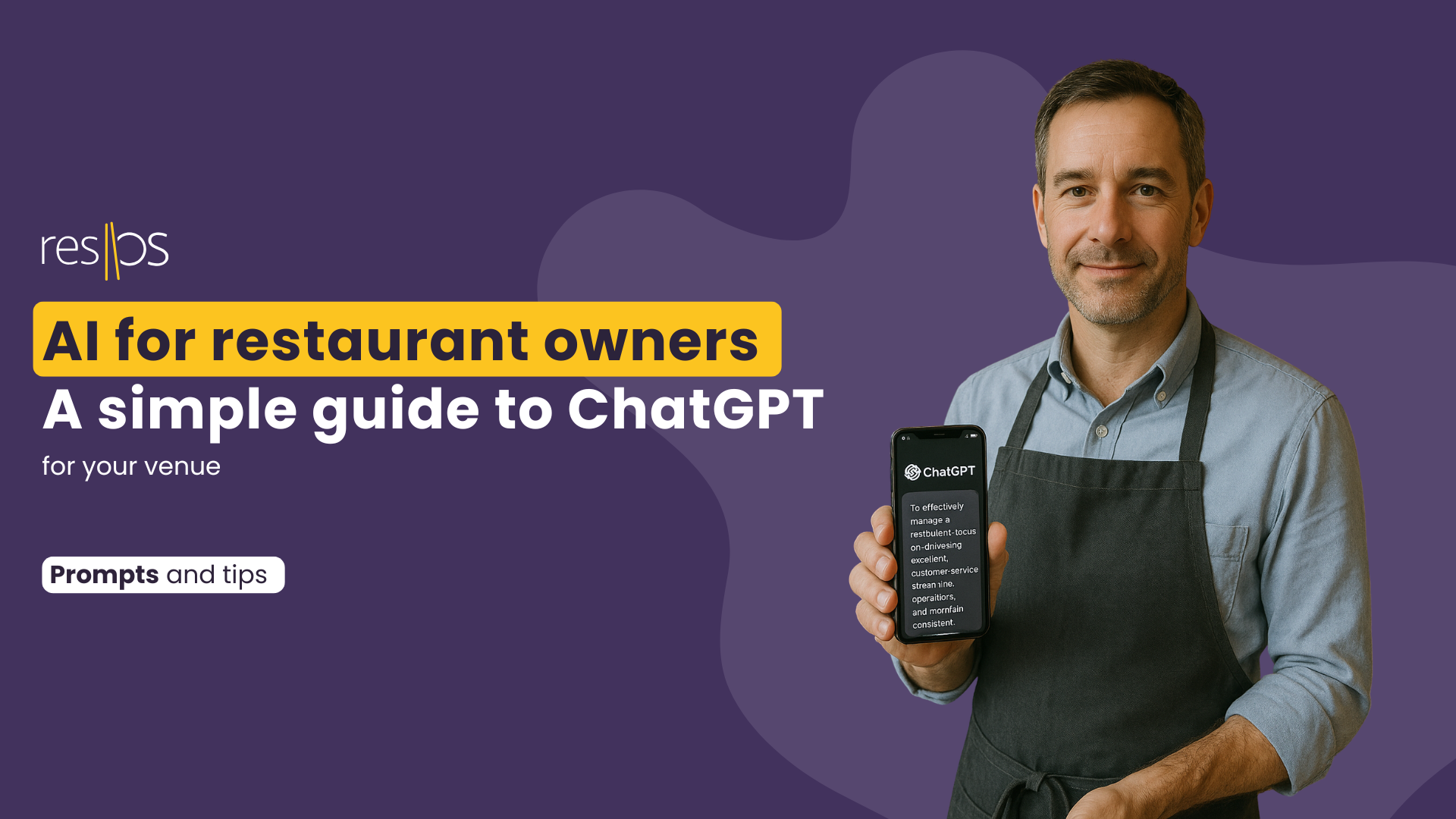The UK restaurant and hospitality industry is in constant motion, with over 200,000 hotels, restaurants, and cafés driving billions in annual sales.
To thrive in this highly competitive space, restaurant owners must keep pace with shifting consumer behaviours, evolving cuisine preferences, and new regional dynamics.
Here’s a closer look at the key data shaping 2025—and what it means for your restaurant.
1. Quick Service Restaurants Rule—But Independent Operators Can Still Win
Most restaurants in the UK are now quick service. In fact, 61% of all UK restaurants are limited service, and 94% of these are quick service restaurants (QSRs). Nearly a third (28%) are chains like Greggs or McDonald’s.
This shows that the market is crowded, but there is still room for independents. Local restaurants can win by offering fresh, local ingredients, friendly service, and unique menus.
For example, a family-run burger shop in Manchester could attract more loyal customers by serving burgers made with local beef and seasonal toppings. By using a restaurant booking system, small operators can reduce no-shows, fill more tables, and compete with big brands on service.
- 61% of UK restaurants are limited service (think quick service or fast casual).
- 94% of those are quick service restaurants, and 28% are chains.
👉 What this means for you:
Chains like McDonald’s and Greggs dominate, but independents can stand out with unique menus, better service, and local connections. For example, a family-owned burger spot can use a restaurant reservation system like resOS to reduce no-shows and improve turnover—advantages chains often overlook.
2. Full-Service Restaurants Are Thriving With Global Cuisines
Full-service restaurants (FSRs) still have a strong share of the market, making up 22% of restaurants in the UK. Many of these focus on global cuisines: 25% serve European food, 21% focus on Asian dishes, and 10% specialise in meat and seafood.
Hotels also play a role. About 17% of hotels make more than £5 million in sales each year, proving that customers are willing to spend more on quality food and experiences.
This is a good reminder that people are not only looking for a meal—they are looking for a memory. Using a restaurant table management system helps these restaurants seat more guests without lowering the quality of service.
- 22% of restaurants are full-service.
- Top cuisines include European (25%), Asian (21%), and seafood & meat (10%).
👉 What this means for you:
Diners are looking for authentic experiences. If you run a full-service restaurant, highlight your unique regional dishes and make booking effortless. A restaurant table booking system with floor plan management makes it easier to maximize seating and increase revenue without cramming tables together.
Serve More Guests Without Sacrificing Quality
resOS helps full-service restaurants and hotels seat more guests, reduce no-shows, and deliver 5-star experiences every night.
3. Drinks Are a £13 Billion Opportunity
Drinks are one of the biggest sources of money in the sector. Every year, UK restaurants and bars spend about £13 billion on drinks. This includes £5 billion on soft drinks and water, and £8 billion on alcohol like beer, spirits, wine, and champagne.
Bars and pubs alone spend £4.3 billion a year on drinks and another £2 billion on food. It’s also interesting that 61% of pubs are “dry pubs”, meaning food sales are higher, while 29% are “wet pubs”, where alcohol is the main seller.
For restaurants, this is a big chance to grow profits. A simple upsell, like a £4 craft soft drink or a £6 cocktail, can quickly add up across hundreds of bookings.
With prepaid reservations, you can even secure this extra revenue before the customer arrives. When combined with prepayments on reservations, operators can secure these high-value bookings in advance.
4. Takeaway and Delivery Are Non-Negotiable
Off-premise dining has become an everyday habit for UK consumers. The numbers speak for themselves:
- 86% of hot beverage drinkers order takeaway or delivery from foodservice venues.
- 43% of coffee drinkers prefer to enjoy their coffee in cafés, but 64% order through drive-thrus—averaging 2.5 visits per month.
- Tea remains the nation’s top hot drink, with 3.3 servings per person each month consumed outside the home.
For operators, this isn’t just a trend—it’s the new normal. A café in Leeds can grow revenue by offering takeaway packaging for teas and lattes, while a full-service restaurant in London can introduce a delivery-friendly menu alongside dine-in.
By connecting a multi-language online booking system with integrations like Reserve with Google, restaurants can capture digital traffic and convert it into both delivery and in-house sales.
5. The West Midlands Surpasses London in Food Diversity
London is often called the food capital of the UK, but the West Midlands now has the highest number of multicultural restaurants. The area leads in cuisines like Chinese, Indian, Italian, Burgers, and Fish & Chips, even beating London’s averages.
This makes the region very competitive. A restaurant in Birmingham, for example, isn’t only competing with others of the same cuisine—it’s competing with all types of restaurants that give diners a wide range of choice.
In such a busy market, service and efficiency matter as much as the menu. A restaurant reservation system with a waitlist feature can help seat more guests, reduce queues, and keep diners happy.

Data-Driven Growth for Restaurant Owner
The UK HoReCa sector in 2025 is defined by scale, variety, and rapidly shifting consumer habits. Quick service dominates the numbers, but full-service restaurants and hotels are thriving by offering global cuisines and premium experiences.
Drinks are a £13 billion revenue driver, takeaway, and delivery have become everyday habits, and regional hotspots like the West Midlands are reshaping the competitive landscape.
For restaurant owners, the key takeaway is clear: you cannot rely on menu alone. Success in 2025 comes from combining data-driven strategy with smart technology. A modern restaurant booking and table management system like resOS gives you the tools to cut no-shows, optimize seating, manage waitlists, accept prepayments, and integrate with booking channels like Google—all while freeing you to focus on delivering exceptional hospitality.
👉 Want to see how resOS can help your restaurant thrive in 2025? Book a free demo today and take the first step toward smarter operations and higher profits.
What This Means for Restaurant Owners
The UK restaurant sector in 2025 is shaped by five key forces:
- Quick service restaurants dominate the numbers.
- Full-service restaurants thrive by serving global dishes.
- Drinks bring in £13 billion every year.
- Takeaway and delivery are part of daily life.
- Regional hotspots, like the West Midlands, are becoming more competitive than London.
To succeed, restaurant owners need to pair great food with smart operations. A modern restaurant booking and table management system like resOS helps reduce no-shows, improve turnover, and even handle prepayments and waitlists. This makes it easier to keep up with industry changes while keeping your guests happy.



